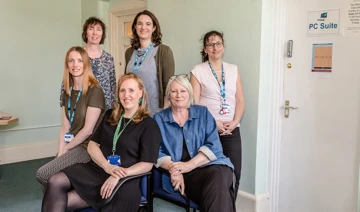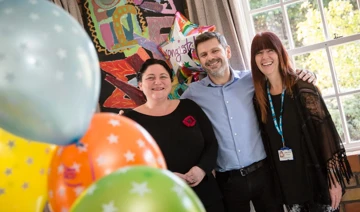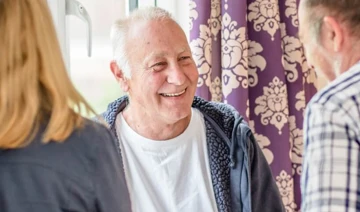Low secure forensic and specialist services at KMPT awarded the RSQM
Date added: 04 January 2019
The RJC is pleased to announce that the Low Secure Forensic and Specialist Services at the Kent and Medway NHS and Social Care Partnership Trust (KMPT) has been awarded the Restorative Service Quality Mark (RSQM).
KMPT's low secure forensic and specialist services supports the recovery of offenders with intellectual disabilities and/or mental health difficulties. The service runs a restorative justice therapy programme and focuses on preventative approaches and de-escalation with minimal use of restrictive interventions.
Chris Straker, the RJC’s interim chief executive, said: “I’m thrilled that the low secure forensic and specialist service at KMPT has achieved the RSQM, the first UK forensic mental health service to do so. This award reflects the team’s commitment to meet the needs of both patients and staff through the development of high quality and innovative restorative practice. Congratulations to the whole team.”
The RSQM is a badge of quality that guarantees that a service provides safe, high quality restorative practice which meets the six Restorative Service Standards. The service at KMPT joins other RSQM awardees – in sectors ranging from criminal justice through education to care – delivering high quality restorative processes.
Sarah Cooper, Forensic Psychologist in Training at KMPT said: “We were absolutely delighted to hear we passed the RSQM. As a service we have worked incredibly hard over the last few years in considering how restorative practices could best be applied to meet the needs of patients and staff. To be the first UK forensic mental health service to be recognised in this way is a fantastic achievement and one the service is very proud of.
“Our service supports the recovery of offenders with intellectual disabilities and/or mental health difficulties and it is recognised that the evidence base for restorative practices is less well developed in this particular arena. Undertaking the RSQM has laid way for further refinement of our evaluation processes, ensuring we can build a robust evidence base, ready for a more comprehensive evaluation and analysis.
“It is also hoped that by achieving the RSQM we are able to further promote how the complex needs of adult offenders with mental health difficulties and/or learning disabilities can be met through carefully considered and applied restorative practices.”
You can find out more about the RSQM here.
You can read more in our latest Connected magazine.




